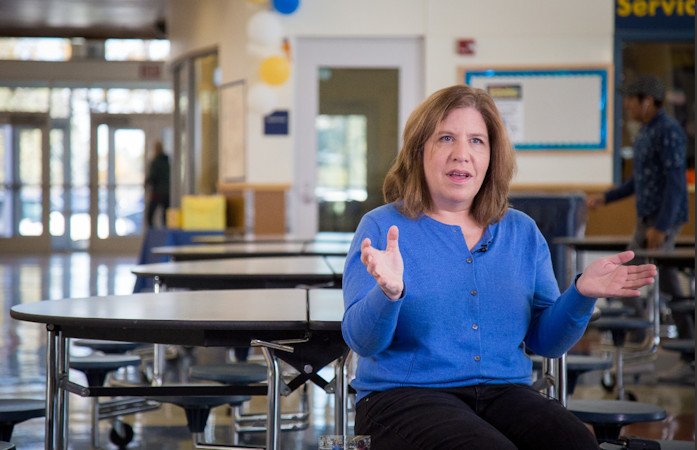OSU-Cascades professor receives $628,000 ODE award to boost K-12 students’ participation in computer science

Only 4% of high school students are taking computer science classes, 2% are female
BEND, Ore. (KTVZ) -- An Oregon State University-Cascades professor has been assigned a $628,000 award from the Oregon Department of Education to expand universally engaging, culturally appropriate and inclusive computer science education for K-12 students.
The award is part of a statewide plan which aims to ensure computer science education is available to public school students on an equitable basis and to broaden participation for all students by 2027-28. It has been funded in part through a $9.8 million federal grant awarded to the Oregon Department of Education. In addition to OSU-Cascades, the plan was also developed in partnership with the University of Oregon and Portland State University,
Roughly 41% of high schools in Oregon offer students a foundational computer science course, according to the Oregon Department of Education, but just 4% of the state’s high schoolers are taking one of those classes, and only 2% of those students are female.
“An understanding of computing is necessary, foundational knowledge in a world where technology is part of our everyday lives, no matter our career choices,” said the award administrator, Jill Hubbard, an associate professor of practice in computer science who also coordinates the degree program at OSU-Cascades.
“This award will enhance Oregon K-12 teachers’ ability to familiarize every student, including underserved students, in their classrooms with computing," she said. "As a byproduct, society will benefit from more diversity in the technology workforce and in approaches to problem-solving using computing.”
The award will build support structures that create systematic changes focused on equity and inclusion in computer science education.
According to Hubbard, many computer science teachers are tasked with creating curriculum with little professional development support. Often, courses are tied to specific educators, making it difficult to sustain courses from year to year, especially in rural areas.
The award will fund professional development in Exploring Computer Science, a national, equity-driven and research-based introductory high school curriculum shown to increase participation by underserved students. Hubbard said the award will also provide stipends for teachers to attend summer workshops and professional development throughout their first year of teaching the curriculum.
Additionally, the award will establish regional specialists to support local professional development communities of computer science teachers. It will also fund the development of resources and workshops to support K-12 school counselors and administrators, who help teachers ensure all students have access to computer science education, said Hubbard.
“We’re working to develop scalable, sustainable, and systemic solutions that intentionally increase participation in computer science by underserved students,” Hubbard said.